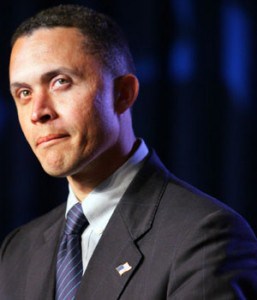Harold Ford, Jr., a former Democratic congressman from Tennessee and John Sununu, former governor of New Hampshire, are unhappy with an Op-Ed piece written by David Cay Johnston in the New York Times that calls out the telecom industry for high prices and and an uncompetitive marketplace.
Ford, who can usually be found in the green room of various cable news networks waiting to deliver his pro-industry messages on behalf of front groups like Broadband for America, says that 93 percent of Americans are happy as can be with their broadband Internet service.
Sununu joined Ford in some less-than-factual arguments about the state of American broadband:
Second, nearly 90 percent of all Americans can choose from two or more wireline competitors and at least three wireless broadband providers, most of whom now provide some of the fastest 4G LTE broadband networks in the world. Meanwhile, new fiber optic, satellite and wireless choices keep emerging.
Third, during the past four years, broadband providers invested $250 billion in the nation’s broadband infrastructure, while other industries sat on their cash.
Fourth, unlike many other consumer products, the monthly prices for broadband Internet have remained relatively constant, while average speeds have increased by 900 percent or more. Free-standing broadband service is now routinely available for $20 to $30 a month.
That is playing fast and loose with the truth. In reality:
- Most Americans have one cable and one phone company to choose from, not “two or more.” Wireless broadband providers offer service with a cap so low, it can almost never provide a suitable replacement for wired broadband service. Although AT&T and Verizon Wireless have growing 4G LTE networks, neither carrier has provided universal access to LTE speeds. T-Mobile and Sprint are only getting started. The fiber optic choices that are emerging these days are primarily from community-owned providers Ford’s industry friends vehemently oppose. AT&T does not offer fiber to the home service and Verizon effectively suspended expansion of its FiOS fiber network several years ago. Wireless choices are now shrinking because of mergers and acquisitions and satellite broadband remains a painful experience regardless of the provider;
- Most that the investment made in “broadband” is focused on expanding wireless 4G service. That investment allowed both AT&T and Verizon to pay Uncle Sam dramatically lower tax bills — AT&T even collected a refund. Home broadband expansion has been far less expansive;
- Monthly broadband bills have not remained constant — they are rising, and more rapidly than ever. Speeds enjoyed by average customers have not increased by 900 percent, only some top speeds that are priced well out of range for most Americans. The price both quote for free-standing broadband is for “lite” service, often so slow it no longer even qualifies as “broadband.” Often, that budget service also comes with usage caps, sometimes as low as 5GB per month.
Sununu and Ford close:
Fortunately, very few policy makers in either party have endorsed the kind of heavy-handed regulations that Mr. Johnston’s arguments seem to imply — regulations that would only stifle investment and truly put America at risk of falling behind.
America has already fallen behind, and will remain in decline as long as regulators and Congress listen to a handful of telecommunications companies speaking from their sock puppet front groups and handing out campaign contributions to elected officials to keep things exactly as they are today.


 Subscribe
Subscribe
